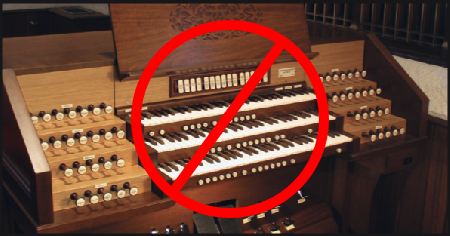
One mark of Christian worship is its simplicity. Though much pomp and circumstance has cropped up in the centuries following Christ’s establishment of His church, the first century Christians were humble and in the worship they offered up to God.
When they gathered together on the Lord’s day, they prayed, sang, gave as they were prospered by God, heard the word of God taught, and remembered the Lord’s death through the simple feast Jesus instituted. There were calls for them to wait on one another, to be unified, to edify one another, and to give glory to God. Worship was never about them. Never about their own talents. Never about how the church could serve them. It was always and only about what they could do for God and for each other.
A beautiful passage which illustrates this truth is Colossians 3:15-16, “And let the peace of God rule in your hearts, to which also you were called in one body; and be thankful. Let the word of Christ dwell in you richly in all wisdom, teaching and admonishing one another in psalms and hymns and spiritual songs, singing with grace in your hearts to the Lord.”
We have often pointed out the truth that Christian worship, in the scriptures, consisted simply of singing psalms, hymns and spiritual songs. In these specifics there is the prohibition against singing other types of songs, or participating in other types of musical expression as a part of their worship. (Silence does not authorize!)
Of course, it is not uncommon for denominations to use special occasions to sing or perform patriotic or other secular songs. More commonly, the songs today are accompanied by mechanical instruments of music. This was not done in the first century. There is no indication that harps, trumpets, pianos, organs or any other types of instruments were used prior to 666 AD. Some scholars believe it was at that time that Pope Vitalian I approved the use of the organ in Catholic churches.
Some however, contend that was not until the 12th century that mechanical instruments became generally accepted as a part of worship in the Catholic church. Before that date, the organ was met with strong opposition.
This point is made to establish a simple truth, there is no scripture precedent for using instruments. This should not surprise us, both because of the simplicity of Christian worship in the first century, and because of the purpose of the singing itself.
It is obvious that when a single person uses an instrument as a part of worship, he is performing. Organists perform, guitarists perform, soloists perform, choirs perform. Stages are built for performances. Rehearsals are done to sharpen the performance. Applause is sometimes offered in response to the performances.
In contrast, worship in song is not a performance. When we sing as a congregation (in accordance with Colossians 3) we do two things. 1) We praise God; and 2) we teach and admonish one another. These things are accomplished with the fruit of our lips. When we are doing this, instruments become hindrances, rather than aids to the efforts of God’s children.
The words are important, as is the heart of each Christian who sings. What is not important is the tune, the accompaniment, or the “performance” of the song. God wants all to sing praises to His name, and that is all that matters to Him.
To see The Patternists Page on Facebook, click here, and Like!




